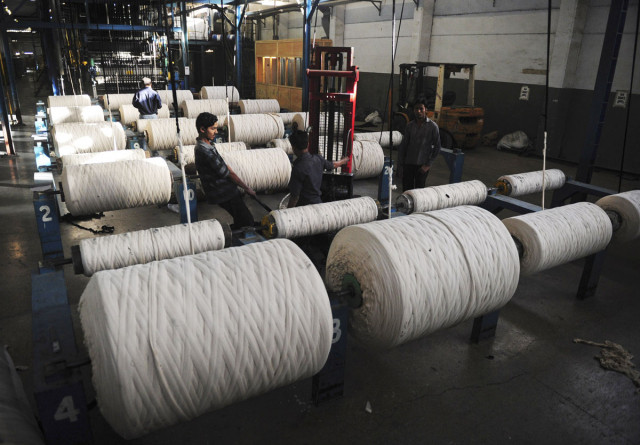Promoting domestic industries: FCCI suggests production of import substitutes
Asks govt to take immediate steps to arrest growing imports

PHOTO: AFP
Imports increased to $53.02 billion whereas exports stood at $20.4 billion, taking the gap above $32 billion in the previous fiscal year. "If the pace continues, we will be unable to achieve our economic targets," Chawla said.
Despite Pakistan being an agrarian economy, he pointed out, it was disturbing to note that cotton production had dropped from 13 million bales to 10 million bales.
"Pakistan is a blessed country and has nine different ecological zones where we can cultivate all types of exotic and high-value fruits, vegetables, cereals, pulses and spices."

The FCCI official decried that despite having an edge, Pakistan was importing a large quantity of edible oil, tea and agricultural commodities.
"Our policymakers have totally ignored high-value crops, which are one of the major causes of rural poverty and migration from rural to urban areas," the chamber president added.
Owing to ill-conceived policies, the cost of production had increased manifold and hence traders were unable to export surplus wheat to international markets even at the minimum purchase price, he complained.
"Per acre yield in Pakistan is also very low compared to neighbouring countries," he said, adding Pakistan's agriculturists as well as successive governments had failed to initiate value addition in the agriculture produce.
The government must ban or impose a heavy regulatory duty on unnecessary imports in addition to encouraging local substitutes for major import goods, he said.
Published in The Express Tribune, October 7th, 2017.
Like Business on Facebook, follow @TribuneBiz on Twitter to stay informed and join in the conversation.


















COMMENTS
Comments are moderated and generally will be posted if they are on-topic and not abusive.
For more information, please see our Comments FAQ